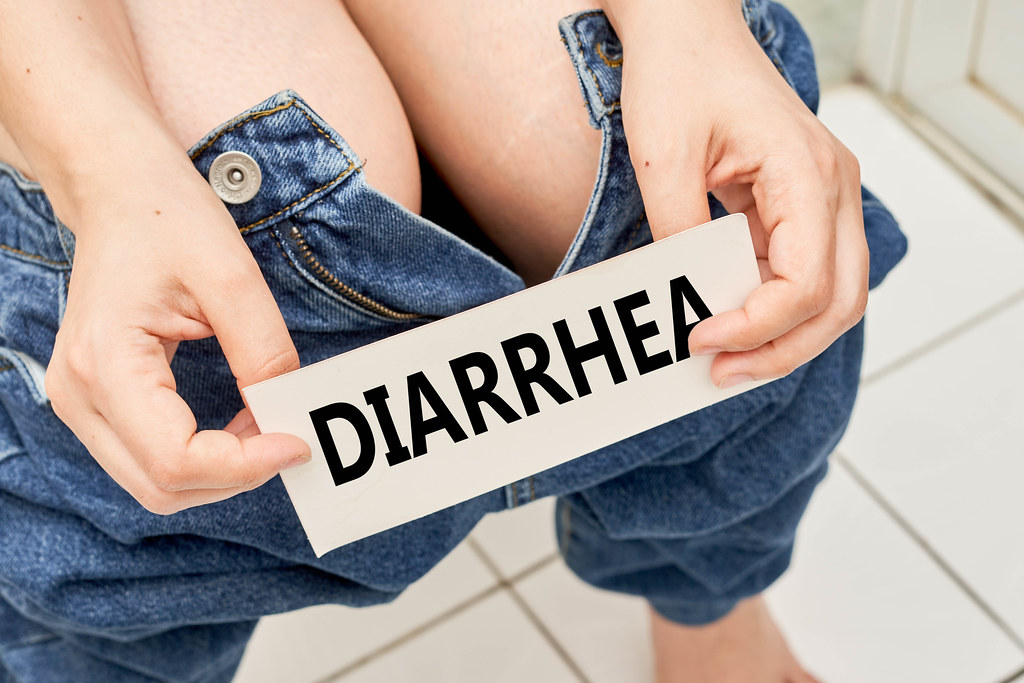
Let’s discuss a habit that many people have that is very personal. Maybe you know that quiet time in the bathroom. Some people will check their cell phones, maybe the news. It doesn’t feel like there’s any harm in doing that, does it? Just a short break, a little “me” time. But now we must discuss an important health-hazardous habit. Sitting on the toilet for too long can cause this. Doctors are issuing warnings that we need to pay attention to for the sake of our health.
For a long time, the time spent sitting on the toilet is very short. You’d go to the bathroom, do your business, and then leave, very simply. But now, cell phones have prolonged that quick process. Checking a notification once becomes sitting and scrolling for several minutes. It can be twenty minutes lost in the digital world. Medical experts warn that staying more than ten minutes can lead to health problems. Certain parts of our body get tired and some times we don’t realize it.
The most worrisome are hemorrhoids, also known as piles. They are swollen blood vessels located in the back passage. Hemorrhoids are much more common than you might think and many people get them. For example, one in three adults in the UK sometimes get hemorrhoids. People usually think of them as a minor and embarrassing problem. However, they can cause serious discomfort such as itching, pain or bleeding. Sometimes, lumps can also develop in or near the anus.
Doctors are linking more cases of hemorrhoids to sedentary lifestyle and cell phone use. Consider the mechanics. Gravity won’t play any role when you sit on the toilet for long periods of time. This downward posture puts unnecessary pressure on the veins there. The veins in the lower rectum are constantly subjected to this pressure. Over time, the veins become swollen and inflamed, which is called hemorrhoids. The longer you sit, the more pressure you put on them and the higher the risk.

It’s not just the veins that are stressed. The muscles that support this area can also be affected by habit. Medical experts say that being sedentary makes these supporting muscles weaker. They say the muscles of the rectum and anus can become weak. These muscles are part of the pelvic floor muscle group. The pelvic floor is the muscle that runs from your pubic bone to your tailbone, which supports your core and pelvic organs and is vital for bowel and sexual health.
Surgeon Lai Xue talks about the importance of this habit. He finds that habit is the key issue when treating patients with hemorrhoid symptoms. More and more people now spend their time on the toilet. This is unhealthy for the anorectum and pelvic floor, he said. This is not just a theoretical risk, but one that clinicians see in their daily practice.
Stress and muscle weakness cause more than hemorrhoids or discomfort, and this habit sets the stage. One such condition is rectal prolapse. Compared to hemorrhoids, rectal prolapse is not as common. When this happens, the rectum stretches and begins to protrude from the anus. This condition is much more serious than hemorrhoids and requires frequent surgery.
Dr. Farah Monzur, MD, agrees with the concerns about habituation. She explains that conditions like rectal prolapse can get progressively worse with prolonged toileting. This is especially true for people who labor. Simply being sedentary, coupled with the distraction of a cell phone, can cause people to exert themselves even more. Unnecessary exertion, combined with sitting for too long, can put repeated pressure on the tissues. This pressure can cause anal and pelvic tissues to stretch and weaken.
Among doctors who deal with these issues, there is a great deal of agreement. The general recommendation is to stand up if you don’t have a bowel movement within five to ten minutes. Continuing to sit beyond that point is not good for the body. It will only prolong the time that the area is under unnecessary pressure.

Technology products such as cell phones can exacerbate this problem; getting lost in your phone can make you lose track of time. This also applies to our discussion of chronic stress. Distractions disrupt your body’s signals and your attention becomes divided. He points out that you may become more tense, leading to not paying attention to your body’s cues. Everyone knows that tension is a big risk for hemorrhoids.
There are other bad things, and not just physical risks to the area or pelvic floor. The habit of using a cell phone in the bathroom can create a psychological dependency. It makes it hard to be alone without needing stimulation, and the bathroom becomes just another place to be entertained. And not just a necessary place for bodily functions. Constant digital contact, even if brief, can impair concentration. It’s harder to concentrate outside of the bathroom, compromising productivity and clarity.
And let’s not forget the hygiene aspect, which is also very disturbing. Using your cell phone in the bathroom means you’re transmitting harmful germs to your phone, and you’re putting it in contact with your face and hands multiple times a day.

Strictly limiting your bowel movements is the first step you can take right now. It will help you break this dangerous and stubborn habit. Experts strongly advise against cell phones, and reading material should never be put in them.
In our connected world, this sounds boring. But it addresses the main cause of sedentary behavior, and distraction is always the main driver. Don’t take anything with you, they say, to keep your brain busy. It’s as simple as that. It makes you lose interest in sitting on the toilet.
Eliminate the urge to stay on the toilet longer. Helping with bowel movements through diet is also helpful. Constipation sometimes makes stools hard and the need to push can cause many problems. Being sedentary can also increase these problems. Low fiber, not drinking water, and not getting enough exercise can all take their toll.
All of these can cause you to always have difficulty using the toilet. Making changes in this area will help your digestion. Consuming more fiber is definitely key; fiber adds bulk to your stool. It makes it easier for you to have a bowel movement. Some fibers absorb water and help soften it.

The NHS lists the symptoms of hemorrhoids that we can know about. Bleeding after a bowel movement is one sign, and mucus discharge may also be present.
There is also discomfort in the anal area, as well as a feeling of not being empty after a bowel movement. Consult your doctor at the earliest when you see these signs. One can also go for the symptoms of rectal prolapse, though it occurs less frequently than hemorrhoids.
Difficulty in controlling bowel movements is another sign. This is less common, but requires medical attention as soon as possible. Most hemorrhoids are easily controlled by lifestyle, and some over-the-counter medications or minor surgeries can help. But changing habits is the key to prevention.
Related posts:
Doctors pinpoint the exact amount of time you should spend on the toilet – break this limit and risk painful health problems
This Woman Went Viral For Discussing The Social Habits Women Should Try To Unlearn, And I Couldn’t Agree More
6 Small, Everyday Habits Pelvic Floor Physical Therapists Wish You’d Break




